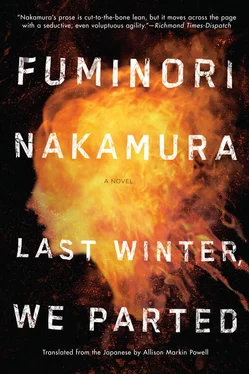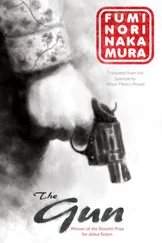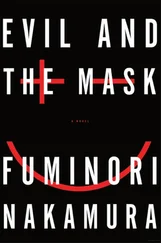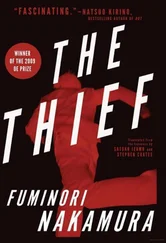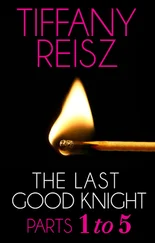Images of my own actions drift before my eyes. The heat of the moment, the sensation in the air — I experience everything as if I were reliving it. Down to the last trivial motions — even rubbing my eyes and swallowing my saliva. But in these visions, there are butterflies flying around me. I’m sure they’re not real. But it’s as though the butterflies are trying to disrupt the images I remember in my madness … It’s almost as if they have come to save me.

Do you remember the first time I ever held a camera?
As far as everyone else is concerned, perhaps that was a fateful encounter — me and a camera. But a camera meant everything to me. Literally, everything. That’s because I interacted with the world through the lens of a camera.
My first camera was like a toy, a black Polaroid. The first photographic subject in my life was you, my older sister. “Take a picture in case I disappear.” You were only twelve years old, and that’s what you said to me. I could sense the danger then too. If Father were to kill us, I wanted to leave evidence that we had been alive in this world, otherwise … No, that’s a lie. That’s not it. It didn’t matter to me whether I lived or died. What I used to think was, “Even if he kills you, this way I can still see your face every day.” You were always so concerned about what would happen if he killed you. What would happen to your little brother if you died. That’s why you said, “I want you to take a picture of everything about me. Put all of me into this photo.” Back then, sis, were you really just thinking of me when you said that? That wasn’t all, was it? Of course it’s true that you worried about me, but you — still a child yourself — you couldn’t help but find it strange, the phenomenon of having your image appear on the page as a “photo,” and maybe you were thinking that your self could be transferred into the picture? By doing so, you could find a safe place to go. Like inside the little locked closet in your room, or in the openings of the refrigerator or cupboard that no one paid any attention to, or outside, in the niches between the concrete blocks in our park, behind the flower beds … Maybe, if you could have, you would have left me and gone off somewhere.
Now I’ve grown up and won all kinds of awards for my photographs, but it’s because of what happened back then. Because I was so serious about trying to get all of you into the photo when I was clicking the shutter. Over and over again, I wanted to rob you of yourself … Even if what was left was nothing more than an empty shell. I was trying to capture the entirety of you in a photograph.
It wasn’t until much later that I realized what I really wanted was neither you nor a photo of you.

Sorry for bringing up bad memories. Thanks for getting me a lawyer. I’d just figured I’d have a court-appointed lawyer, so I am grateful. I don’t like him much — even the watch he wears is hideous — but I guess he’s better than nothing.
… Why is that? What’s better than nothing?… No matter what I do, I’m going to be executed.
I FELL ASLEEP in my desk chair. Now I have a headache.
There is still some whiskey in a glass that has been watered down by melted ice. I had started drinking in that bar, and had kept on going even after I came home.
Thinking about how icy the water from the tap is in winter does not motivate me to wash my face. I start up my computer and light a cigarette. It is eleven in the morning. I wonder how long I have been asleep.
I look at the archived materials that have been converted to digital format. Compared to how he looked when he was arrested, his appearance now is considerably drawn and haggard.
Yudai Kiharazaka. Thirty-five years old. Charged with the murders of two women, and sentenced to death at his first trial. The defendant is currently awaiting his appeal to the High Court. He had been a photographer by profession, but he only worked in fine art, and had mainly lived off of an inheritance from his maternal grandfather.
When he was young, he and his older sister had lived in a children’s institution. Their mother had disappeared, and when the children had run away from their father, who was drunk all the time, they had been taken into protective custody by the police and then placed in the institution. It was unclear whether they were physically abused by their father, but both of them were suffering from malnutrition, so at the very least they had been neglected.
From then the records drop off for a while. It’s unknown how the siblings were raised in the children’s institution. But in due time the sister set out on her own and the brother started working at an auto parts manufacturer’s plant while he went to photography school.
Apparently the Kiharazakas’ mother had eloped when she married their father, and her family had disowned her. Even after she disappeared, there was no sign that she had tried to return to her parents’ home. The children’s grandmother had died, and their grandfather who was still alive refused to acknowledge his own daughter ever again; it goes without saying that he never recognized the children she had given birth to. But after his death, there were no other relatives to claim his estate, so the two siblings inherited it.
As a photographer, Kiharazaka is rather highly regarded. He has been selected for numerous awards, and four years ago he won a mid-level international competition called the Imre Award with a photo called Butterflies . At first glance, it appears to be a composite picture, but it isn’t.
I open up the folder on my computer where I had saved the image. The photograph is a still from a film, and the whereabouts of the original photograph, along with the film, are unknown. The image I am looking at is a digital version that was published in a magazine when he won the award. When I click on the image, my breath catches. No matter how many times I see it, I still find it unsettling.
Countless black butterflies are flying about wildly inside a white room. Like smoke, the butterflies swirl in numerous eddies, seeming to burst from the center of the room and explode outward. Behind the disarray of the butterflies, there is a figure. A woman. But she is obscured by the shadows of such a vast number of butterflies. She is hidden. It is impossible even to tell if she has any clothes on. Or, at first glance, whether it even is a woman. But it definitely is a woman. I’m not sure why, but I know that it is .
“True desire is hidden,” the Russian photographer who nominated the image for the award writes about the photograph. “Like Tarkovsky illustrated in his films, people’s entire lives are motivated by their true nature, which they don’t understand. When people look at this photograph, it inundates their inner selves. I don’t know whether these butterflies represent divine goodwill, or the way that viewers willingly hinder themselves by their desire not to know their true character. When these butterflies disappear, in what way will the world that surrounds the viewers, who now know their true inner nature, be transformed?”
His critique continues as follows.
“The hidden figure appears to be a woman, but it very well may not be. It may not be a man, either; it may not have a gender, or very well may not even be a human being.”
Certainly, it very well may not be a woman. But then, why had I immediately assumed that it was?
“There was a clergyman who prayed to God, asking for peace in the world.”
Читать дальше
